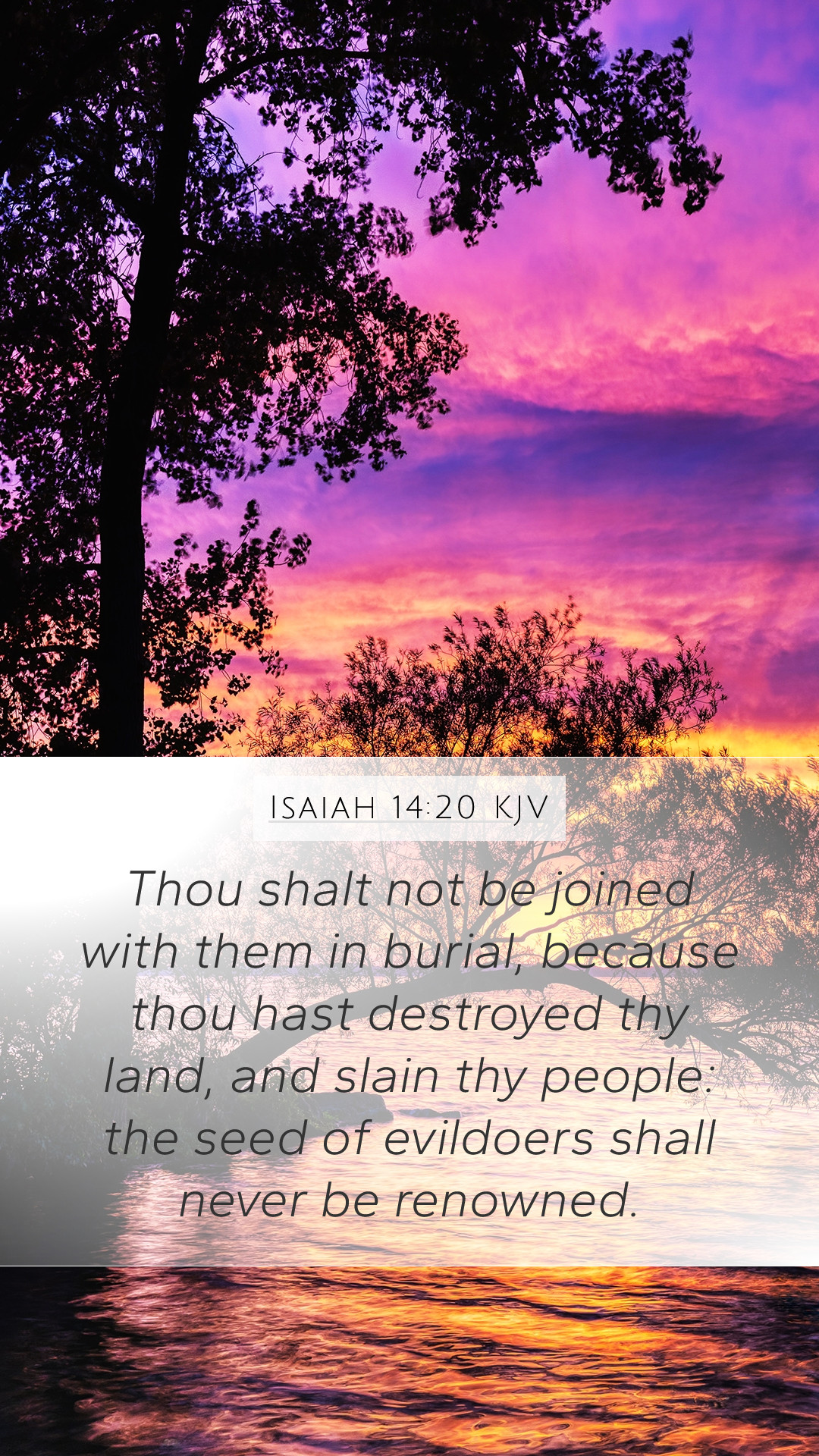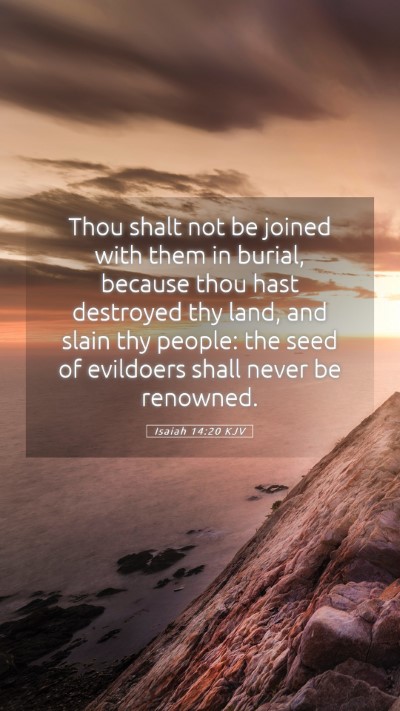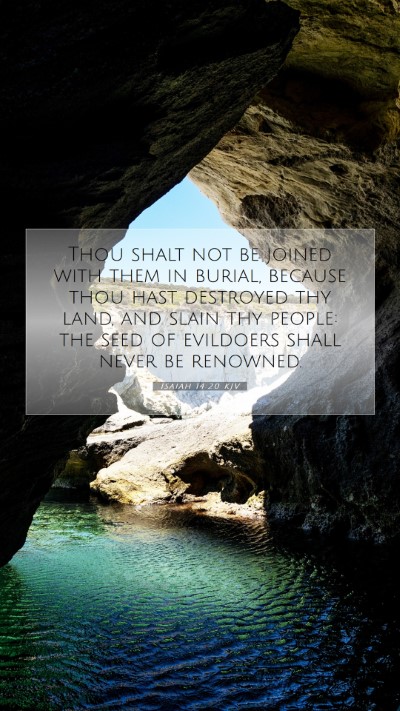Understanding Isaiah 14:20
The Bible verse Isaiah 14:20 states:
"You will not join them in burial, for you have destroyed your land and killed your people. Let the offspring of the wicked never be mentioned again."
Overview of Isaiah 14:20
This verse is part of a larger context where the prophet Isaiah speaks against the king of Babylon. It illustrates not just judgment, but God's ultimate declaration against pride and oppressors. The verse emphasizes the consequences of sin and rebellion against God, showing the grim fate of those who lead others astray.
Interpretation Summary
- Divine Judgment: This verse indicates the severity of God's judgment. Matthew Henry comments on the desolation that the wicked king of Babylon will face, and how their legacy will be one of shame rather than honor.
- Separation from Honor: Albert Barnes reflects on the idea that the king will not be given honorable burial rites, highlighting the complete rejection of his actions and legacy. It symbolizes total disgrace.
- End of Wickedness: Adam Clarke notes that the descendants of such tyrants will not be remembered positively. God ensures that the threats of oppression and wickedness do not carry on into future generations.
Key Themes in Isaiah 14:20
- The Fate of the Wicked: This verse warns that the unrighteous will face dire consequences.
- Legacy of Sin: Those who have led others into destruction will not enjoy a peaceful remembrance.
- God’s Authority: The proclamation underscores God’s ultimate authority and right to judge nations and their leaders.
Connections to Other Scriptures
Isaiah 14:20 can be cross-referenced with the following verses:
- Proverbs 10:7 - "The memory of the righteous is a blessing, but the name of the wicked will rot."
- Jeremiah 22:19 - "He will be buried with the burial of a donkey, dragged away and thrown outside the gates of Jerusalem."
- Revelation 20:15 - "Anyone whose name was not found written in the book of life was thrown into the lake of fire."
Application for Life
This verse serves as a profound reminder of the consequences of one's actions, encouraging believers to reflect on their own lives. Here are some applications:
- Consider the legacy of your actions and choices in life.
- Reflect on the impact of leadership and the responsibility that comes with it.
- Engage in Bible study groups to deepen your understanding of scripture and its applications.
- Utilize online Bible study tools to further explore themes of justice and judgment.
Conclusion
Isaiah 14:20 stands as a solemn reminder of God’s justice and the inevitable consequences facing those who live in opposition to Him. The insights provided through various commentaries enrich our understanding of the scripture, offering us both warning and wisdom as we seek to apply these truths in our daily lives.
As you interpret this and other verses, consider engaging with various Bible study topics and guides for a fuller understanding of scripture analysis and Biblical exegesis.


